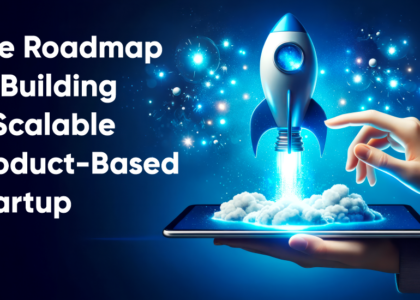Introduction
Becoming an entrepreneur is an exciting journey filled with opportunities, challenges, and constant learning. While starting a business requires passion and determination, success ultimately depends on clarity of vision, strategic decision-making, and adaptability. Every aspiring and established entrepreneur must ask themselves critical questions to navigate uncertainties, scale their business, and stay ahead of the competition.
In this article, we’ll explore the most important questions every entrepreneur must answer to build a sustainable and successful business.
Q1. Why Do I Want to Be an Entrepreneur?
Before starting a business, it’s essential to understand your motivation behind entrepreneurship.
Key Considerations:
Are you driven by financial independence or personal passion?
Do you want freedom from a 9-to-5 job or a legacy business?
Are you willing to handle the uncertainties, risks, and responsibilities of entrepreneurship?
Action Step: Clearly define your personal and professional goals to ensure they align with your entrepreneurial journey.
Q2. What Problem Am I Solving?
Every successful business solves a specific problem for its customers. If you can’t identify a clear pain point, your business may struggle to gain traction.
Key Considerations:
What problem does my product/service solve?
Is there a real demand for my solution?
How does my business create value for customers?
Action Step: Conduct market research to validate demand and understand your target audience’s needs.
Q3. Who Is My Target Customer?
A business without a defined audience will struggle with marketing and sales. Entrepreneurs must identify their ideal customers early on.
Key Considerations:
What are the demographics and behaviors of my target audience?
Where do they spend their time online and offline?
What problems, pain points, and desires do they have?
Action Step: Create buyer personas to refine your marketing and sales approach.
Q4. What Makes My Business Unique?
In a crowded market, differentiation is key to success. Entrepreneurs must have a Unique Selling Proposition (USP) to stand out.
Key Considerations:
How is my product/service better or different from competitors?
Can I compete on price, quality, service, or innovation?
What is my brand’s core message and positioning?
Action Step: Develop a clear brand story that resonates with your audience.
Q5. How Will I Generate Revenue?
A great business idea is only valuable if it has a sustainable revenue model.
Key Considerations:
Will I earn through direct sales, subscriptions, licensing, or advertising?
What are my pricing strategies and profit margins?
How will I ensure consistent revenue growth?
Action Step: Choose a scalable and sustainable revenue model based on industry trends.
Q6. Do I Have a Solid Business Plan?
A business plan is a roadmap for success. It helps entrepreneurs stay focused and secure funding.
Key Considerations:
Have I outlined my vision, mission, and business objectives?
Do I have a strategy for marketing, operations, and finances?
What are the short-term and long-term goals?
Action Step: Write a detailed business plan to guide your startup journey.
Q7. How Will I Fund My Business?
Many businesses fail due to lack of funding. Entrepreneurs need a clear financial strategy.
Key Considerations:
Do I need self-funding, investors, or business loans?
How much capital is required to launch and sustain operations?
What are my options for grants, crowdfunding, or bootstrapping?
Action Step: Determine your startup costs and explore funding options.
Q8. What Marketing Strategies Will I Use?
Marketing is essential for customer acquisition, brand awareness, and business growth.
Key Considerations:
What digital marketing strategies (SEO, social media, PPC) will I use?
Should I invest in content marketing, email campaigns, or influencer collaborations?
How will I track ROI and customer engagement?
Action Step: Develop a marketing plan with a mix of organic and paid strategies.
Q9. What Technology and Tools Will I Need?
Entrepreneurs must leverage technology to automate processes, improve efficiency, and scale operations.
Key Considerations:
What tools will help with CRM, accounting, and project management?
How can AI, automation, and analytics improve decision-making?
What cybersecurity measures do I need to protect my business?
Action Step: Invest in essential business software and automation tools.
Q10. How Will I Measure Success?
Success in entrepreneurship is not just about revenue it’s about long-term sustainability and growth.
Key Considerations:
What KPIs (Key Performance Indicators) will I track?
How will I measure customer satisfaction and retention?
What does long-term success look like for my business?
Action Step: Set clear metrics and growth milestones to track progress.
Conclusion
Being a successful entrepreneur requires self-reflection, strategic planning, and adaptability. By answering these critical questions, you can build a strong foundation for your business and increase your chances of long-term success.






